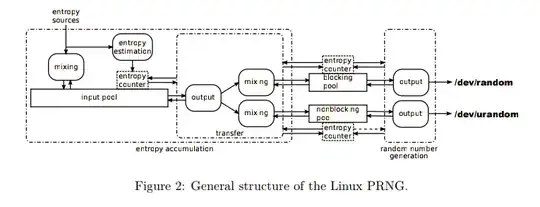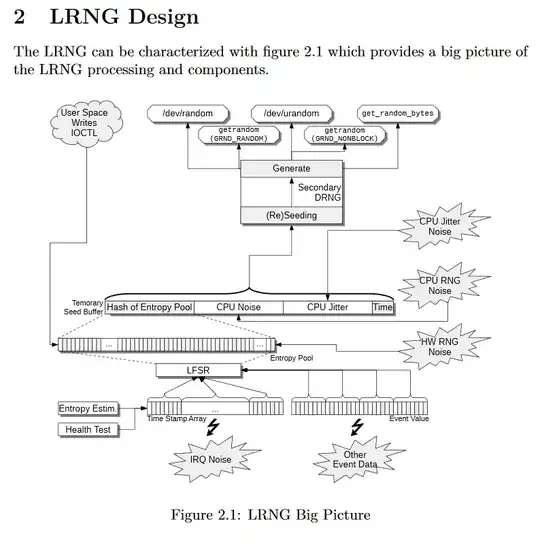I'm new to the /dev/random and /dev/urandom pipes in general and have an application calling from /dev/urandom which I'm attempting to inject entropy into. I'd prefer not to change the source for this application, but an additional process calling rngd -r /path/to/file from what I can tell appears to inject entropy into /dev/random and increment the size such that it can unblock.
Now my question is: will rngd -r /path/to/file inject into /dev/urandom in parallel to /dev/random or is it limited to /dev/random?
If the answer is no, is there a similar utility which will inject into /dev/urandom - or even better - prepend bits to it such that the machine's PRNG is bypassed with the random entropy entirely in userland?

